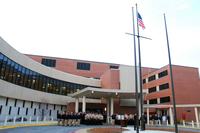By Kevin Coleman -- DefenseTech Cyber Warfare Correspondent
Military and security experts agree that cyber attacks provide a means for potential adversaries with limited resources and capabilities to overcome the significant U.S. conventional military advantages. It is this concept that has security professionals sounding the alarm about our exposure. The rapidly evolving threat of cyber attacks on the United States pose significant technical questions that must be addressed, but the problem-set does not stop there. Cyber threats also present privacy, civil liberties, legal, policy, and strategic operational issues that are in many cases unique and quite challenging.
One point to address this growing threat is the Department of Homeland Security (DHS). The Department of Homeland Security’s state-of-the-art National Cyber Security and Communications Integration Center is the focal point of their efforts. Recently, DHS and the Department of Defense (DoD) signed an agreement under which the two agencies will work together to deal with the growing number of cyber security issues. At the same time DHS signed a second, similar agreement with the National Security Agency (NSA) to work together in an effort to strengthen the nation's defenses against cyber attacks.
Historically speaking, collaboration has not been a strong point between government entities. Will the criticality of defending the cyber infrastructure of the United States allow these three organizations to work together seamlessly or will existing doctrine, conflicts, politics and egos get in the way? That is the big question.








